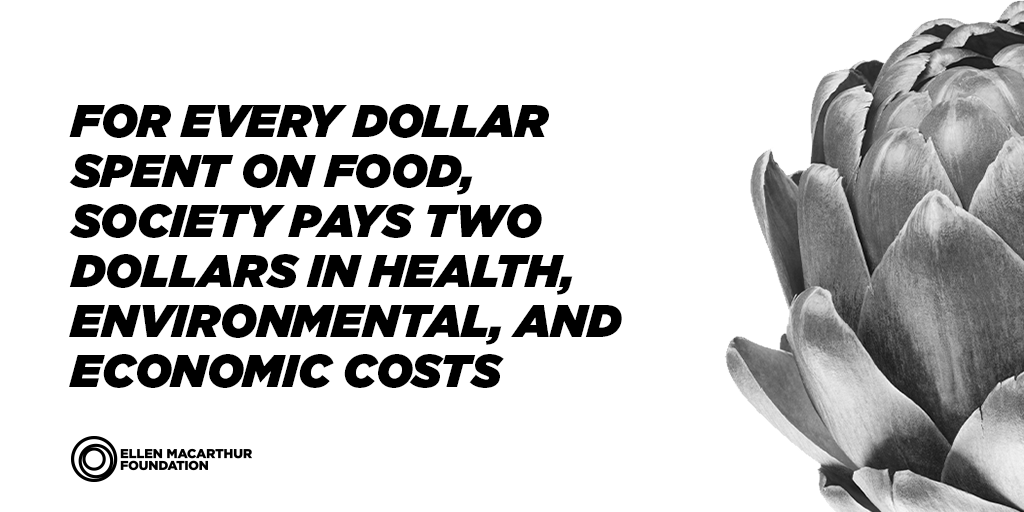
Even when trying to make healthy food choices, consumers are at risk because of the way food has been produced. To ensure people around the globe can eat healthily, there is a need to not only consider what we eat, but how it is produced. The Foundation sets out a vision for a new system where food is grown locally and in a way that regenerates natural resources, waste is eliminated through better redistribution and by-product use, and healthy food is produced without the need for harmful practices.
“The way we produce food today is not only extremely wasteful and damaging to the environment, it is causing serious health problems. It cannot continue in the long term. We urgently need to redesign the system. People around the world need food that is nutritious, and that is also grown, produced and delivered in a way that benefits their health, the environment and the economy.”
– Ellen MacArthur
It finds that cities’ actions to eliminate waste and improve health through the circular economy could be worth USD 2.7 trillion a year to the global economy. Health costs caused by pesticide use would decrease by USD 550 billion a year, and antimicrobial resistance, air pollution, water contamination, and food-borne diseases would reduce significantly. Greenhouse gas emissions would be expected to decrease by 4.3 Gt CO2e, the equivalent of taking one billion cars off the road permanently. The degradation of 15 million hectares of arable land would be prevented and 450 trillion litres of fresh water saved annually.
Cities are key to this food revolution. By 2050 they will consume 80% of food, giving them the power to drive the shift to this healthy system. Cities themselves can unlock USD 700 billion a year by using organic materials to help produce new food and products, and by reducing edible food waste.
“As pressures on the food system continue to mount — expanding urbanisation, doubling of food demand, increasing food waste, and growing health, environmental and economic costs — it is time to step back and reconsider our actions. The concept of a circular and regenerative food system offers entirely new solutions, driven by reconnecting urban consumers with food production. Our analysis shows this is an economically attractive opportunity we cannot afford to ignore.”
– Martin Stuchtey, Founder & Managing Partner, SYSTEMIQ
The report was made possible by philanthropic partners Calouste Gulbenkian Foundation, players of People’s Postcode Lottery (GB) and Porticus, in collaboration with lead partners Intesa Sanpaolo and Intesa Sanpaolo Innovation Center, and core partners Danone, Sitra, Suez, Tetra Pak and Veolia.
Cities and Circular Economy for Food is an affiliate project of the World Economic Forum’s Platform for Accelerating the Circular Economy (PACE). The report has been produced as part of Project Mainstream, a CEO-led global initiative created by the Ellen MacArthur Foundation and the World Economic Forum, which helps to scale business driven circular economy innovations.

